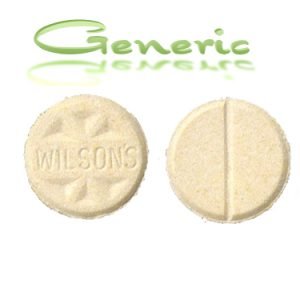Opana(Oxymorphone) 40MG
$200.00 – $1,200.00
Oxymorphone, sold under the brand names Numorphan among others, is a powerful semi-synthetic opioid analgesic (painkiller)
- 60pills for $200
- 160pills for $310
- 260pills for $450
- 560pills for $810
- 1060pills $1200
Buy Opana (oxymorphone) ER 40mg
Oxymorphone, sold under the brand names Numorphan among others, is a powerful semi-synthetic opioid analgesic (painkiller)
Whether in a dedicated pain-management clinic or in a community pharmacy, pharmacists can provide valuable education and treatment recommendations to patients and clinicians. Pain programs, jointly managed by pharmacists, nurse practitioners, specialists in behavioral medicine and functional restoration, and specialty pain physicians, can enhance the satisfaction of patients and health care professionals, improve clinical outcomes, and minimize the need for secondary pain referrals.1 Pharmacists who become knowledgeable in pain pharmacopoeia can facilitate safe, effective, and cost-beneficial equianalgesic opioid conversions in primary care settings
Differences among opioid influence individual patient response and tolerability, risks and benefits in specific disease states, the likelihood of drug interactions, and ease of monitoring. Differences among patients with respect to genetic factors, age, sex, and the prior use of opioid also contribute to variability of response to individual opioid6 Consequently, when selecting LA opioid, clinicians cannot reliably predict how a given patient will respond. Patients with chronic pain usually require consecutive trials of several LA opioid before they find one that provides adequate analgesia with acceptable tolerability.7–9For this reason, it is essential to have multiple LA opioid from which to choose.
PHARMACOLOGY AND PHARMACOKINETICS
Oxymorphone has selective affinity for the mu-opioid receptor, whereas oxycodone has weaker mu-receptor affinity and greater kappa-receptor affinity. Oxymorphone has lower protein binding (10% to 12%) compared with morphine (30% to 35%) or oxycodone (45%).Its highly lipophilic properties facilitate its transit across the blood–brain barrier.
Although oxymorphone ER has minimal potential for pharmacokinetic interactions, its use with sedatives, tranquilizers, hypnotics, phenothiazines, and other central nervous system (CNS) depressants can produce additive effects. Hence, as with other opioids, vigilance is required in preventing pharmacodynamic interactions during therapy with oxymorphone ER.
Pharmacists can help prevent medication errors, particularly those that result in drug interactions. Patients receiving opioid therapy for chronic pain may have complex medical problems, often requiring the involvement of their primary care physician, a pain specialist, and one or more medical or surgical s
CLINICAL TRIAL PROGRAM
The clinical trial program for oxymorphone ER has included more than 2,000 opioid-naive and opioid-experienced patients with chronic cancer pain and non-cancer pain. The duration of treatment ranged from two weeks to two years. Collectively, the trials demonstrated that oxymorphone ER was an effective, generally well-tolerated 12-hour opioid agent in controlling chronic pain.
In long-term, open-label trials of cancer and non-cancer pain, analgesic effects were maintained over time, and in patients with osteoarthritis and low back pain, the effects were accompanied by improvements in functional outcomes.
| SELECT=> | 60pills for $200, 160pills for $310, 260pills for $450, 560pills for $810, 1060pills $1200 |
|---|
1 review for Opana(Oxymorphone) 40MG
Add a review Cancel reply
Related products
Pain Medication
Pain Medication
Products
Products
Products
Pain Medication
Pain Medication
Pain Medication










Damir –
Second purchase, I am very happy